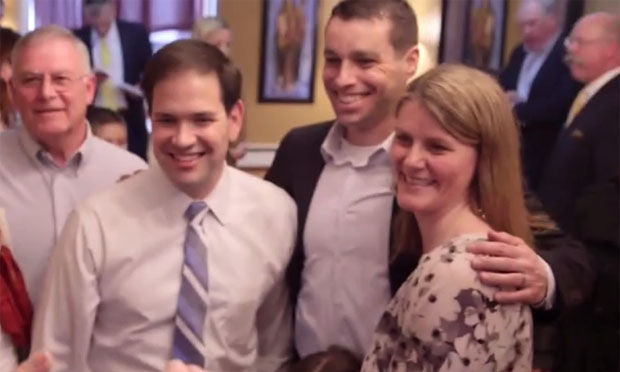
Since the last presidential election in the United States, many new policy issues have surfaced, and a great deal of new scholarship has been published. Here we roundup some useful studies, reports and research briefs that might shed light on relevant themes in the run-up to the November 2016 election.
Journalists have often been criticized for focusing too much on the “horse race” — who is up or down in the polls. Although reporters are, broadly speaking, becoming more data-driven in their approach to campaigns, it remains unclear if more issues-based stories or reports on under-covered themes will be generated in this election cycle.
Below is a sample of scholarship published over the past year or two that might help inform broader campaign coverage:
_______
Gender
“How Views About Gender Shape U.S. Election Campaigns”
2015 research brief on the interplay of gender and elections in the United States, by Kelly Dittmar of Rutgers University-Camden.
“How Perceptions of Gender Shape Political Knowledge and Activism: The Case of Female U.S. Senators”
2014 study from Arizona State University published in the Journal of Politics showing the strong gender effect of female senators on women voters and their engagement in politics.
“Uncovering the Origins of the Gender Gap in Political Ambition”
2014 study in American Political Science Review showing that women are seldom encouraged as much as men to run for office at an early age.
“A Non-Gendered Lens? Media, Voters, and Female Candidates in Contemporary Congressional Elections”
2015 study from Danny Hayes of George Washington University and Jennifer L. Lawless of American University suggests that reporters may be doing a better job overall of overcoming gender bias.
Race
“When and Why Minority Legislators Matter”
2014 study in the Annual Review of Political Science assessing whether officeholders who are racial or ethnic minorities better represent the interests of constituents from minority communities.
“How to Increase Voter Participation in Low-Turnout Communities”
2014 research brief on the effectiveness of get-out-the-vote strategies, by Melissa R. Michelson of Menlo College.
“The Struggle to Restore Voting Rights for Former Prisoners”
2014 research on efforts to restore voting rights to former felons, by Michael Leo Owens of Emory University.
“Voting Rights for Whom? Examining the Effects of the Voting Rights Act on Latino Political Incorporation”
2015 study by Melissa J. Marschall1 and Amanda Rutherford of Rice University provides the “first systemic evidence that the language assistance provisions have a direct effect on Latino representation,” underscoring the “need for federal government involvement in protecting the voting rights of underrepresented groups, in this case, language minority citizens.”
Voting
“Unequal Voter Turnout In U.S. Presidential Elections”
2015 research on voter participation in presidential elections from 1972 to 2008, by Jan Leighley of American University and Jonathan Nagler of New York University.
“Electoral Integrity, Flawed Contests Worldwide and U.S. Voting Issues in Global Perspective”
2013-14 reports and studies that rank the degree of integrity of voting worldwide, providing perspective on America’s recent questions over voting, redistricting and campaign-finance laws.
“Voter ID Laws and the Evidence: A Report from the Government Accountability Office”
2014 review of research on U.S. voter ID laws, with a focus on a new study from the GAO that estimates their impact on voter turnout in two states that changed their laws between the 2008 and 2012 elections.
“Voting Restrictions and the 2012 Election in Florida: Research Brief”
2014 research on the effects of the retrenchment of early voting in Florida, by Daniel A. Smith of the University of Florida.
“State Ballot Questions and the Power Of Wording: An Experiment in “Framing” Issues
2014 study from Utah State University published in Perspectives on Politics demonstrating how the wording of ballot question titles can influence voters’ choices.
Inequality, power and the elites
“The Financial Incumbency Advantage: Causes and Consequences”
2014 study by Alexander Fouirnaies of the London School of Economics and Andrew B. Hall of Harvard University on the advantages that incumbent candidates in U.S. elections can have over challengers.
“’Moochers’ and ‘Makers’ in the Voting Booth”
2014 study by Dean Lacy of Dartmouth on how voters’ perceptions of themselves as beneficiaries of federal spending can affect their subsequent choice of presidential candidates.
“The Influence of Elites, Interest Groups and Average Voters on American Politics”
2014 study published in Perspectives on Politics analyzing the relative influence of economic elites, interest groups and voters on the passing of public policies.
Keywords: Barack Obama, Ben Carson, Bernie Sanders, Carly Fiorina, Chris Christy, Hillary Clinton, Jeb Bush, Joe Biden, Marco Rubio, Mike Huckabee, Rand Paul, Scott Walker, Ted Cruz
